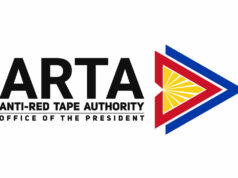Higher FDI seen with CITIRA in place
FOREIGN INVESTORS could pour in more than $10 billion in the Philippines once a measure that seeks to lower corporate income tax is enacted, central bank Governor Benjamin E. Diokno said last week.
“Our estimate is around $8 billion but that’s early in the game,” he told reporters on the sidelines of a Bangko Sentral ng Pilipinas event on Friday. He added that the amount could exceed $10 billion yearly once the proposed Corporate Income Tax and Incentives Rationalization (CITIRA) Act is put in place.
The bill, which will gradually cut corporate income tax to 20% from 30%, will also remove redundant fiscal incentives. Finance Secretary Carlos G. Dominguez III earlier said he expects the law by March.
Mr. Diokno is bullish that the Philippines remains a strategic target for foreign direct investments (FDI) amid global uncertainties. “There are few countries that you want to invest in right now,” he said. “The Philippines is one.”
FDI net inflows rose by a third to $672 million in October from a year earlier, according to data from the Bangko Sentral ng Pilipinas (BSP). Yearly FDI net inflows declined in the past seven months before that.
FDI net inflows worth $5.8 billion for January to October, however, were a third lower than a year earlier, reflecting subdued investor sentiment due to sluggish global economic activity, BSP said.
In comparison, Vietnam received $11.96 billion worth of FDI for the eight months through August, 6.3% higher than a year earlier, Reuters reported, citing the Ministry of Planning and Investment. Indonesia got $7 billion in FDI in the third quarter alone, up 17.8% year on year.
The Philippine central bank expects FDI net inflows to hit $8.8 billion this year, higher than its $6.8 billion target for 2019.
Cheuk Wan Fan, chief market strategist for Asia at the Hongkong and Shanghai Banking Corp., earlier said Philippine FDI this year would probably remain at the same level if uncertainties about the proposed income tax law remained unresolved.
Slowing foreign direct investments in the Philippines is a downside risk to the growth outlook this year, Fitch Solutions Macro Research said in a note on Friday.
The research firm has upgraded its 2020 growth forecast to 6.3% from 6.1%, lower than the government’s 6.5% to 7.5% target for the year.
PEZA PROPOSES CHANGES
Meanwhile, the Philippine Economic Zone Authority (PEZA) has submitted its proposed enhancements to tax bill to the Department of Trade and Industry (DTI) after meeting with industry stakeholders.
The agency in October reversed its stance seeking exemption from the bill rationalizing tax incentives and reducing corporate income tax for investors, proposing changes instead.
PEZA proposed to retain an investment promotion agency’s ability to give incentives, instead of submitting recommendations to a fiscal incentive review board (FIRB) headed by the Finance secretary, according to an e-mailed document.
“Creating another layer of investment approval through the FIRB is an anathema to efficiency-seeking investments that go to PEZA,” PEZA Director General Charito B. Plaza said in an accompanying letter. “This will unduly add burden to what is now a very simple and very straightforward approval and registration process in PEZA.”
PEZA wants four to eight years of income tax holidays (ITH) for new projects.
Under the bill approved by the House of Representatives, investment projects in Metro Manila will have an ITH of up to three years. Areas adjacent to Metro Manila will enjoy four years of ITH, and other areas will be given six years.
PEZA also proposed an alternative of four years’ ITH for Metro Manila enterprises, six years for Metro Manila-adjacent projects and up to eight years for all other areas.
After the expiration of the ITH, PEZA export-supporting enterprises will pay 7% tax on gross income in lieu of national and local taxes for 20 years.
Alternatively, export companies in economic and freeport zones may choose to pay the reduced corporate income tax, which would otherwise be required from all companies.
The agency also proposes a 5% tax on gross income for 20 years on garments, apparel, textile, leather goods and footwear industries.
PEZA also wants spare part imports to be exempted from duty. These include aviation parts for repair, overhaul and maintenance. — Luz Wendy T. Noble and Jenina P. Ibañez



